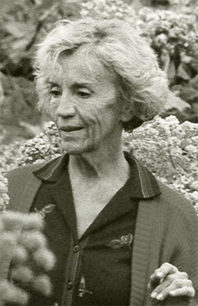
Last fall and winter, TIFF had separate retrospectives of two Scandinavian auteurs and actresses. Springtime is here, and they’re continuing that tour by looking at a little volcanic island. They call this program Wayward Heroes: A Survey of Modern Icelandic Cinema. And they’re beginning that program with director and co-writer Fridrik Thór Fridriksson’s Börn náttúrunnar or Children of Nature. This film reminds us that both sight and sound matters. That latter sense helps tell the story of Thorgeir (Gísli Halldórsson). This film’s first act shows him living his retirement years in a southern city with his family.
Despite his new city life, he still remembers the songs he and his fellow men sing in the farms where he used to work. But the noise of urban construction interrupts that beautiful memory. Thorgeir doesn’t agree with the city, and his family, in return, doesn’t agree with him. They send him to a nursing home. It’s a cruel act that understandably lets us empathize with the film’s conservative idea of home. Fridriksson uses familiar yet effective visual tropes here. Curtains blow in the wind, expressing Thorgier’s loneliness. Most of the time he zeroes in on Thorgier as he lives with the other patients. Thorgier’s face is one full of character, reminding us that cinema is an act of observation.
At the home, Thorgier reconnects with his childhood sweetheart Stella (Sigridur Hagalín). These scenes are also important in showing Iceland’s pre-Christian beliefs. Stella talks about creatures in those beliefs like elves and angels. The film expresses the presence of those creatures without having to show them. Thorgier and Stella nonetheless share a frustration towards their current situation. Because of that frustration, they return to the land where they used to live and work. The land where they prefer spend their last days. On the way, Stella reunites with people she thought she might never see. We get a few more heartfelt reunions than she and us expected.
Thorgier and Stella eventually get to their seaside hometown, which the film shows in a stunning fashion. Fridriksson makes the best use of fog outside of noir. This is also a film that surprisingly expresses temperature. In one scene it makes us absorb the perpetual dew of the Icelandic countryside. In the next it makes us feel the warmth that Thorgier and Stella feel from an old fireplace. Both reminisce about their younger selves yet realize that they can’t return. The film smoothly transitions through these contrasts that remind us of our daily contradictions.
Fridriksson is the only Icelandic writer and director to receive an Oscar nomination for Best Foreign Language Film. I took that into consideration while watching this. I’ve only seen one of the films it competed with as well as another that the Academy snubbed that year. But that’s a story for another time. I’ve already wrote the reasons why it earned that nomination. It actually fits well with the other films that came out that year. Most of those films had characters trying to return to the past. And this film handles that heavy theme with a commendable subtlety.

